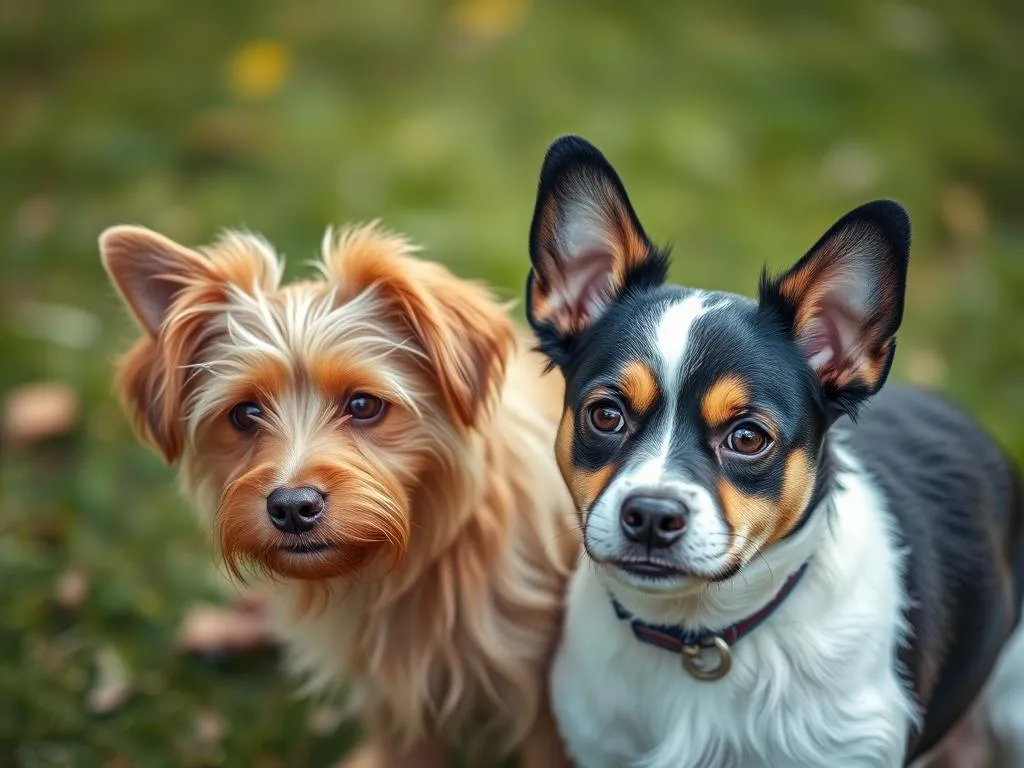
Small dogs have a special charm that captures the hearts of many. Their compact size, playful demeanor, and often affectionate nature make them appealing companions for individuals and families alike. However, when selecting a dog, behavior should be a top priority. Finding the best behaved small dogs can enhance your living experience and create a harmonious environment at home.
Understanding Dog Behavior
Factors Influencing Behavior
Dog behavior is influenced by a combination of factors including genetics, training, socialization, and the environment they are raised in.
-
Genetics and Breed Characteristics: Different breeds have inherent traits that can affect their behavior. For instance, some breeds are naturally more energetic while others are calmer.
-
Training and Socialization: A well-trained dog is typically better behaved. Early training and proper socialization can help a dog grow into a well-adjusted adult.
-
Environment and Owner Lifestyle: A dog’s behavior can be influenced by its living conditions. Owners who provide a stable environment and engage in regular activities with their dogs often see better behavior.
Why Behavior Matters
The behavior of a dog impacts various aspects of owning a pet:
-
Impact on Living Situations: Some small dogs may not be suitable for apartment living if they tend to bark excessively or require a lot of exercise.
-
Compatibility with Family Dynamics: A dog that is well-behaved is more likely to get along with children, other pets, and visitors, making it easier for families to integrate them into their lives.
-
Long-Term Commitment Considerations: Understanding a dog’s behavior can help prospective owners assess whether they are ready for the commitment that comes with dog ownership.
Characteristics of Well-Behaved Small Dogs
Temperament Traits
When looking for the best behaved small dogs, certain temperament traits are key indicators of good behavior:
-
Calmness and Stability: Well-behaved dogs tend to be calm and stable, allowing for easy integration into various living situations.
-
Affectionate Nature: Many small breeds are known for their affectionate dispositions, making them wonderful companions.
-
Intelligence and Trainability: A dog that is intelligent and eager to learn will likely be easier to train, contributing to overall good behavior.
Socialization Skills
Socialization is crucial for a well-behaved dog:
-
Interaction with Other Pets: Dogs that are well socialized are better at interacting with other pets, reducing the likelihood of aggression or fear.
-
Behavior Around Strangers and Children: Well-behaved dogs are typically comfortable around strangers and gentle with children, making them ideal family pets.
-
Adaptability to New Environments: A dog that can adjust quickly to new situations or environments is often easier to manage in various social contexts.
Top 10 Best Behaved Small Dog Breeds
Here’s a look at the best behaved small dogs, along with their unique characteristics:
Cavalier King Charles Spaniel
- Temperament: Known for their friendly and affectionate nature, Cavaliers are gentle and eager to please.
- Behavioral Traits: They are great with children and other pets, making them excellent family companions.
Bichon Frise
- Temperament: Cheerful and playful, Bichons are known for their happy disposition.
- Behavioral Traits: They are quick learners and respond well to training, making them one of the best behaved small dogs.
Pug
- Temperament: Pugs are charming and sociable dogs, often described as having a clown-like personality.
- Behavioral Traits: They are generally well-mannered and form strong bonds with their owners.
Shih Tzu
- Temperament: Shih Tzus are affectionate and enjoy being pampered, often being very loyal to their families.
- Behavioral Traits: Their calm demeanor makes them suitable for families and individuals looking for a laid-back companion.
French Bulldog
- Temperament: French Bulldogs are friendly and adaptable, thriving in various living conditions.
- Behavioral Traits: They are known for being easy-going and affectionate, making them a favorite among urban dwellers.
Maltese
- Temperament: Maltese dogs are lively and playful, yet they possess a gentle nature.
- Behavioral Traits: They are highly trainable and enjoy engaging with their families, making them well-suited for various lifestyles.
Dachshund
- Temperament: Dachshunds are curious and spirited, with a strong personality.
- Behavioral Traits: With proper training, they can be excellent companions and get along well with children.
Boston Terrier
- Temperament: Known as the “American Gentleman,” Boston Terriers are friendly and intelligent.
- Behavioral Traits: They are adaptable to different living environments and are known for their good behavior.
Havanese
- Temperament: Havanese dogs are affectionate and social, often thriving in family settings.
- Behavioral Traits: They are intelligent and can be easily trained, making them one of the best behaved small dogs.
Pekingese
- Temperament: Pekingese dogs are loyal and independent, often forming strong bonds with their owners.
- Behavioral Traits: They are generally well-behaved and can adapt well to various living situations.
Training Tips for Small Dogs
Basic Commands and Training Techniques
Training is essential for all dogs, especially for small breeds:
-
Importance of Early Training: Starting training early helps establish good behavior patterns and prevents bad habits from forming.
-
Recommended Training Methods: Positive reinforcement and consistency are key. Rewarding good behavior encourages dogs to repeat those actions.
Socialization Strategies
Socialization is crucial for a well-rounded dog:
-
Introducing Small Dogs to Different Environments: Gradually exposing your dog to new places and experiences can help them feel comfortable and confident.
-
Tips for Socializing with Other Pets and People: Encourage gentle interactions and provide plenty of positive experiences with other animals and new people.
Common Behavioral Issues and Solutions
Even the best behaved small dogs can face challenges:
-
Separation Anxiety: Gradual desensitization to being alone can help alleviate anxiety when owners leave the house.
-
Barking and Noise Issues: Teaching the “quiet” command and rewarding silence can help manage excessive barking.
-
Aggression Towards Other Animals or Humans: Early socialization and training can minimize aggressive tendencies, ensuring a more peaceful demeanor.
Lifestyle Considerations for Small Dog Owners
Space Requirements
Understanding the space needs of small dogs is critical:
-
Ideal Living Conditions: Small dogs often thrive in apartments, but they still need space to move and play.
-
Considerations for Apartment Living: Regular walks and playtime are essential to keep small dogs happy and well-adjusted in smaller living spaces.
Exercise and Activity Needs
While small, these dogs still require daily activity:
-
Daily Exercise Requirements: Most small dog breeds need at least 30 minutes of exercise each day, including walks and playtime.
-
Fun Activities Suitable for Small Dogs: Games like fetch, agility training, and puzzle toys can keep small dogs mentally and physically stimulated.
Health and Grooming Needs
Maintaining health and grooming is vital for well-behaved dogs:
-
Common Health Concerns in Small Dog Breeds: Be aware of breed-specific health issues, such as dental problems or joint concerns.
-
Grooming Practices for Maintaining Good Behavior: Regular grooming not only keeps dogs looking good but can also improve their comfort and behavior.
Conclusion
Choosing one of the best behaved small dogs can lead to a fulfilling and enjoyable companionship. By considering the individual needs of each breed alongside your own lifestyle, you can make an informed decision that enhances both your lives. Remember, adopting from shelters and rescue organizations is a wonderful way to find a loving companion while providing a dog in need with a forever home.









